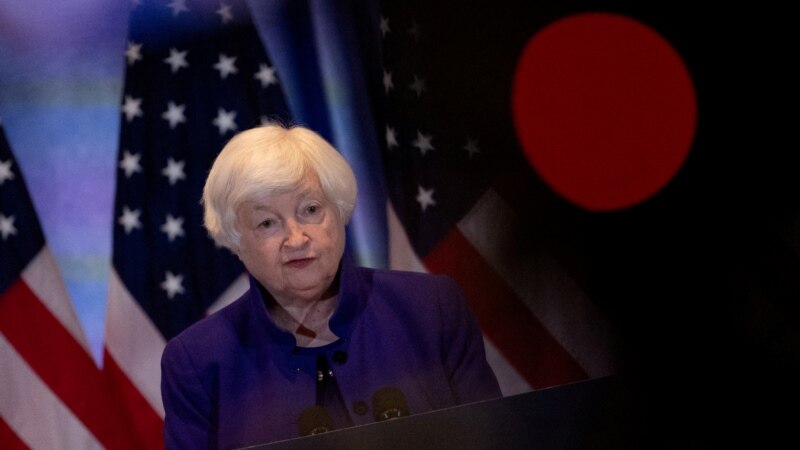U.S. Treasury Secretary Janet Yellen warned China on Monday that Washington would not accept new industries being decimated by Chinese imports, as she concluded a four-day meeting urging Beijing to curb excess industrial capacity.
Yellen told a media conference that U.S. President Joe Biden would not allow a repeat of the “China shock” of the early 2000s, when a flood of Chinese imports destroyed about 2 million U.S. manufacturing jobs.
However, she stopped short of threatening new tariffs or other trade actions if Beijing continues its strong support of electric vehicles, batteries, solar panels and other green energy products.
Yellen, on her second trip to China in nine months, complained that China’s overinvestment has led to factory capacity far exceeding domestic demand, while rapidly growing exports of these products threaten businesses in the United States and elsewhere.
She said the newly established communication forum to discuss the overcapacity issue would take time to reach a solution.
Yellen drew an analogy to the pain the U.S. steel industry has experienced in the past.
“We’ve seen this story before,” she told reporters. “More than a decade ago, strong support from the Chinese government caused Chinese steel to be priced below cost, flooding global markets and decimating industry around the world and in the United States.”
“I have made clear that President Biden and I will not accept this reality again,” Yellen added.
When global markets are flooded with Chinese products with artificially low prices, she said, “the viability of U.S. and other foreign companies is called into question.”
Yellen said her exchanges with Chinese officials advance U.S. interests and that U.S. concerns about industrial overcapacity are shared by allies in Europe, Japan, Mexico, the Philippines and other emerging markets.
push back
China’s National People’s Congress said in March the government would take measures to curb industrial overcapacity.
But Beijing says recent U.S. and European concerns about the risks China’s overcapacity poses to other economies are misguided.
Chinese officials say the criticism underestimates the innovation of Chinese companies in key industries and exaggerates the importance of state support in driving their growth.
They also say tariffs or other trade restrictions would deny global consumers access to green energy alternatives that are critical to meeting global climate goals.
The Ministry of Industry and Information Technology said in a statement carried by state media CCTV and China Daily that trade restrictions on Chinese electric vehicles would disrupt the growing industry and violate World Trade Organization rules.
The ministry added that it was committed to supporting electric vehicle exports and would help “accelerate the industry’s overseas development,” including planning transportation and logistics and supporting companies to innovate and meet global standards.
Xinhua, China’s official news agency, quoted Li Keqiang as saying that the United States should “avoid turning economic and trade issues into political or security issues” and view production capacity issues from a “market-oriented and global perspective.”
Chinese Commerce Minister Wang Wentao expressed sharper objections at a roundtable with Chinese electric car makers in Paris, calling U.S. and European claims that China has overcapacity for electric vehicles baseless.
During this trip to the EU anti-subsidy investigation, Wang Yi said that Chinese electric vehicle companies do not rely on subsidies, but on continuous technological innovation, perfect production and supply chain systems, and full market competition.
Yellen said China’s possible short-term solutions are to take steps to boost consumer demand by supporting families and retirement, and to shift its growth model away from supply-side investment.
Yellen discussed the issue in detail with Prime Minister Li Qiang and met with Finance Minister Lan Fuan on Sunday. She met with People’s Bank of China Governor Pan Gongsheng and former Vice Premier Liu He on Monday.
In an interview with CNBC after the meeting, Yellen said that she was “not considering” trade restrictions on China, but changes in its macroeconomic environment. But she reiterated that she would not rule out the possibility of imposing tariffs.
Follow us on Google news ,Twitter , and Join Whatsapp Group of thelocalreport.in
